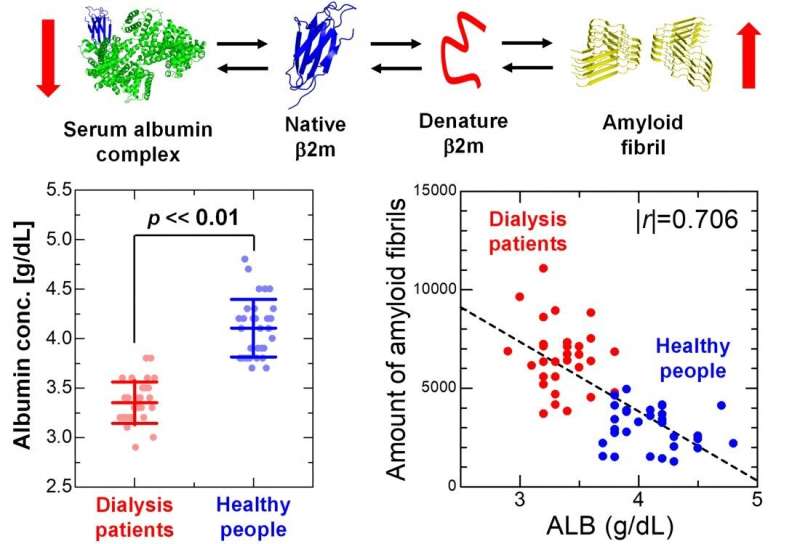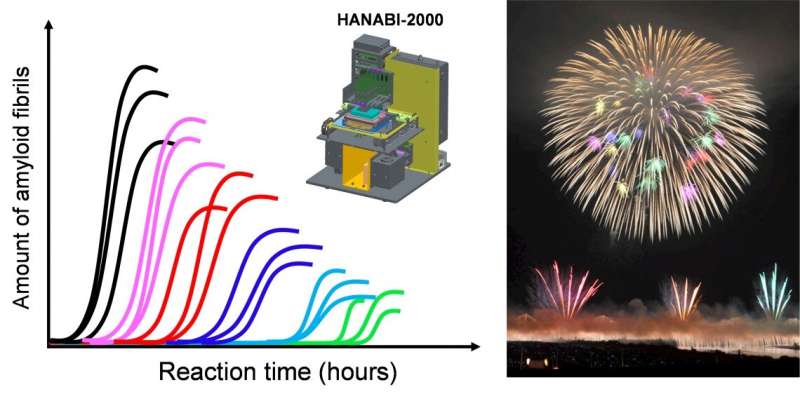Serum albumin could prevent amyloid fibril formation in dialysis patients

Dialysis is a lifesaving technique that artificially filters blood; however, it has some harmful side effects. Now, researchers from Japan have found that monitoring a normal blood component could help prevent one of the more serious complications of long-term dialysis.
In a study in Nature Communications, researchers from Osaka University reveal that a high concentration of a key molecule found in blood can prevent dialysis-related amyloidosis (DRA).
Approximately 350,000 patients in Japan in 2021 were on dialysis due to end-stage kidney disease. Ten percent of patients who are on dialysis for more than 15 years develop DRA, which occurs when β2-microglobulin (β2m) clumps together to form long strings known as amyloid fibrils.
"Previous studies have shown that high serum β2m concentrations and dialysis vintage are the primary risk factors for developing DRA," says Kichitaro Nakajima, first author of the study. "However, not all patients with these risk factors develop the condition."

To identify additional risk factors for developing DRA, the researchers tested the effects of serum, which is the protein-rich liquid part of blood, on β2m fibril formation. They also looked at the effects of serum from patients who were new to dialysis versus long-term dialysis patients, as well as the effects of serum samples taken immediately before or immediately after a dialysis session.
"The results showed that serum albumin, the most abundant protein in serum, markedly inhibits β2m amyloid fibril formation," states Yuji Goto, senior author of the study. "This effect was ameliorated by maintenance dialysis in the short term but deteriorated in dialysis patients in the long term."
More detailed investigations revealed that the inhibitory effect of serum albumin on β2m amyloid fibril formation was due to a phenomenon called macromolecular crowding, in which weak nonspecific interactions between serum albumin and β2m interferes with the ability of β2m to form fibrils. Maintenance dialysis temporarily increases the serum albumin concentration, and therefore decreases the risk of developing DRA, whereas decreased serum albumin concentrations in patients with kidney failure lead to an increased risk of DRA over the long term.
"Taken together, our findings show that low serum albumin concentrations are a risk factor for dialysis patients developing DRA," states Nakajima.
These findings suggest that monitoring serum albumin concentrations in patients on long-term dialysis could help predict, and ideally delay, DRA onset. Furthermore, given that reduced serum albumin also correlates with the onset of Alzheimer's disease, this risk factor could also be applicable to other amyloidosis.
More information: Kichitaro Nakajima et al, Macromolecular crowding and supersaturation protect hemodialysis patients from the onset of dialysis-related amyloidosis, Nature Communications (2022). DOI: 10.1038/s41467-022-33247-3


















